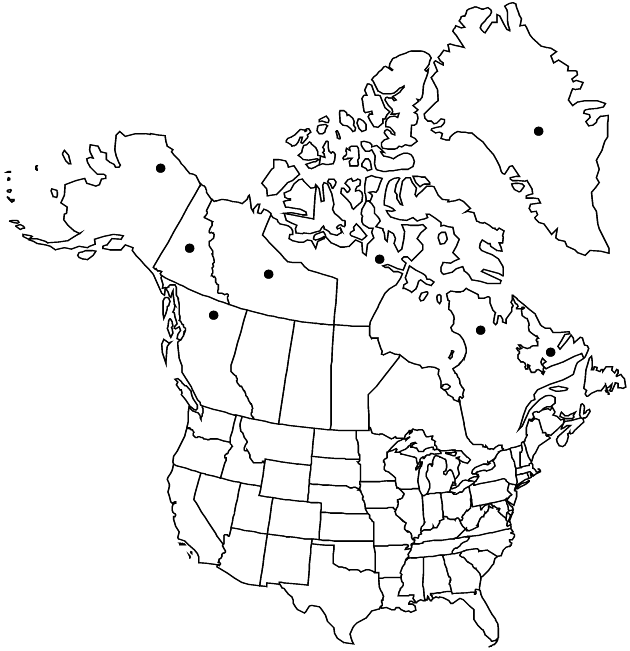Difference between revisions of "Erigeron uniflorus var. eriocephalus"
Phytologia 23: 49. 1972.
FNA>Volume Importer |
imported>Volume Importer |
||
| Line 61: | Line 61: | ||
|publication year=1972 | |publication year=1972 | ||
|special status= | |special status= | ||
| − | |source xml=https:// | + | |source xml=https://bibilujan@bitbucket.org/aafc-mbb/fna-data-curation.git/src/bb6b7e3a7de7d3b7888a1ad48c7fd8f5c722d8d6/coarse_grained_fna_xml/V19-20-21/V20_735.xml |
|tribe=Asteraceae tribe Astereae | |tribe=Asteraceae tribe Astereae | ||
|genus=Erigeron | |genus=Erigeron | ||
Revision as of 20:51, 27 May 2020
Perennials, 3–25(–35) cm; rhizomatous, fibrous-rooted, caudices crownlike, sometimes branched. Stems ascending, sparsely to densely villous or tomentose, especially distally (hair cross walls often purplish black), minutely glandular. Leaves basal (persistent) and cauline; basal oblanceolate to subspatulate, 20–60(–100) × 3–6(–10) mm, cauline gradually reduced distally or little reduced on proximal 1/2, rarely all bractlike, margins entire, faces sparsely villosulous to glabrate, sometimes sparsely minutely glandular. Heads 1. Involucres 8–10(–11) × (10–)15–20(–30) mm. Phyllaries in 2(–3) series (reddish purple), densely lanate (hairs tangled, soft), glandular apically. Ray florets 100–200; corollas purplish to pink or white, 3–6(–8) mm, laminae erect (filiform, 0.3–1 mm wide), not coiling or reflexing. Disc corollas 3.8–5 mm. Cypselae 1.8–2.2 mm, 2-nerved, faces finely strigoso-hirsute; pappi: outer of setae (inconspicuous), inner of 20–30 (accrescent, surpassing disc corollas and involucres in fruit) bristles. 2n = 18.
Phenology: Flowering (Jun–)Jul–Aug.
Habitat: River terraces, snow beds, rocky hills, fell fields, shaley or gravelly slopes, well drained sand or silt, streambeds, peat deposits, herbmats proximal to snowbanks, dryas tundra
Elevation: 400–2200 m
Distribution

Greenland, B.C., Nfld. and Labr. (Labr.), N.W.T., Nunavut, Que., Yukon, Alaska, n Europe, Asia (Russia, Siberia).
Discussion
Evidence is not at hand that might clarify the biological relationship of and appropriate taxonomic rank for var. eriocephalus. Variety uniflorus occurs in the mountains of Europe and Caucasus, mostly south of var. eriocephalus; apparently the two intergrade [see detailed comments by S. G. Aiken et al. (http://www.mun.ca/biology/delta/arctif)].
Selected References
None.